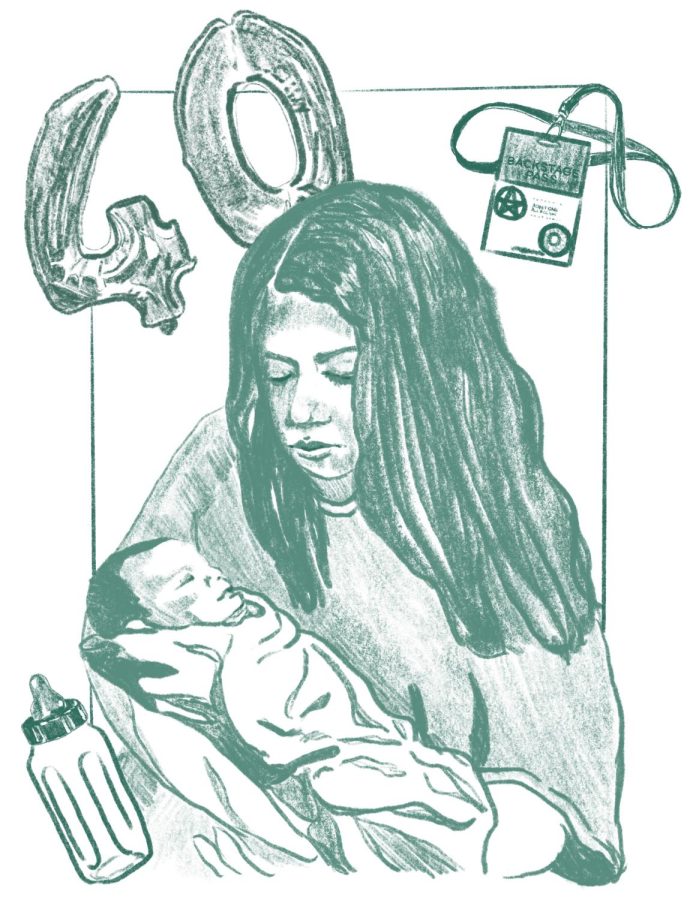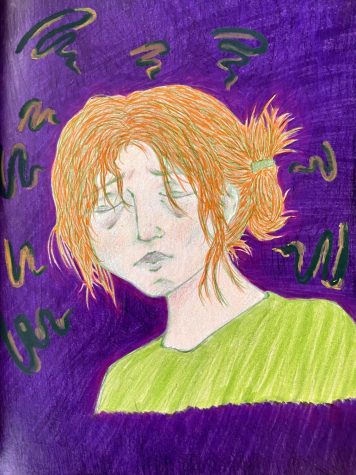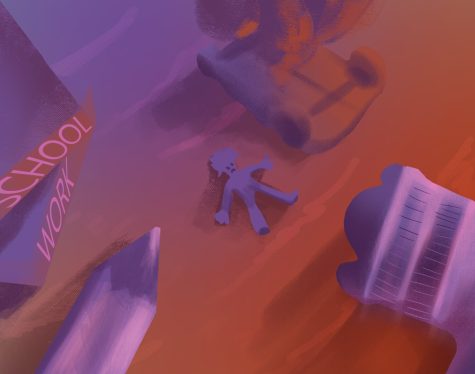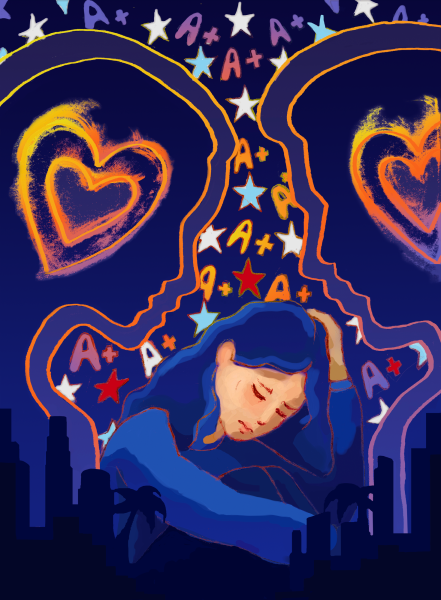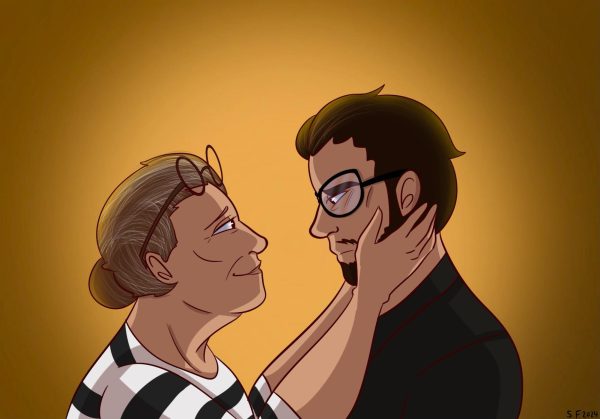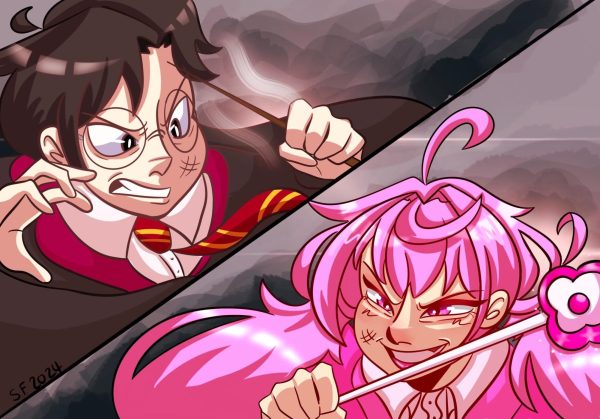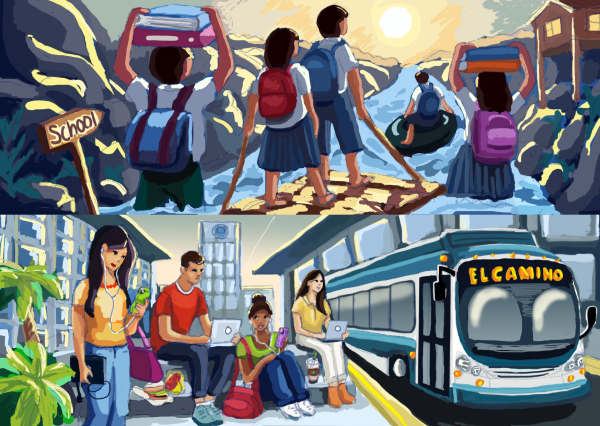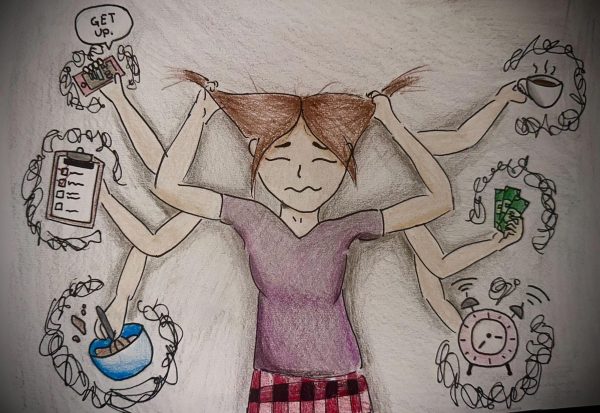I became a mom at 40
Being older didn’t prepare me for motherhood. It made it harder to adapt.
I met my husband at a mutual friend’s house in Highland Park, California, in 1990. He played guitar in a death metal band that I followed to backyard parties in Hispanic neighborhoods all over Los Angeles and to clubs like the Country Club in Reseda, the Waters Club in San Pedro and a show in Tijuana, Mexico. We dated briefly in 1991 and ‘92, then went our separate ways.
Ten years later, in 2002, we ran into each other at a metal festival I was working in Whittier. We exchanged phone numbers and quickly picked up where we left off. Six months later I moved in with him in Santa Ana.
Through my job at an independent record company and his job at a guitar company we were able to get into countless shows for free. Together we went to local club shows, concerts and even traveled to some festivals in Cleveland; Baltimore; Calgary, Canada; and Leipzig, Germany; for the next eight years.
At this point I was 39 and he was 40. His father had passed away five years prior and we had moved in with his mother in Riverside. We were living rent-free and traveled quite a bit, but we weren’t progressing in life.
We had known each other for nearly half our lives and we had talked about getting married and having kids, yet we didn’t feel ready for the commitment or responsibility. We knew that our window of opportunity was closing. I’d be past my child-bearing age soon, so if we wanted to have a child it was now or never.
One morning, in February 2010, I sat up and my head was spinning like never before. It wasn’t a hangover. This was different. I went to a nearby health clinic in Glen Avon, California, and the nurse asked me when I last had a beer. I told her it was around Christmastime and she said not to drink anymore because I was pregnant.
I wasn’t much of a beer drinker, but I was drinking lots of Coke. Fortunately, I was able to get weekly prenatal care at Torrance Memorial Medical Center, which included heart rate monitoring and seeing a nutritionist. For the next seven months I followed a strict nutritional plan and had my son in September 2010. I was 40 years old.
Having a son gave me a great sense of fulfillment, but at the same time it felt like a mistake. I was too old for this. The crying, diaper changes and feedings were 24-hour ordeals. Neither my husband nor I were getting much sleep. I questioned what we had done, but it was too late. We were now responsible for this little life and it was overwhelming.
The next several months were the most challenging. I went back to work on a reduced schedule, but that didn’t last long. Bottles and formula weren’t working. The baby was nursing and only wanted me. On several occasions the baby had to be brought to me.
I was eventually laid-off from my job, but it was a blessing because my son needed me more than I needed the job.
As my son got older, taking care of him became easier, but I was a full-time mom and that was depressing. I was irritable, angry and emotional for several years. Not months. Years. Not being able to work, go to concerts, travel or ride on the back of our Harley-Davidson motorcycle caused me to feel a tremendous loss of identity, freedom and guilt.
I knew being a mom was going to be hard, but it was beyond comprehension. I couldn’t understand why it was so hard to adjust to my new role.
Little by little I accepted the fact that I was no longer “Elsa” and instead I was “Mom.” Over time I realized I probably had postpartum depression.
It was only after reading an article from the Journal of the American Academy of Physician Assistants that I learned older moms “have a statistically significant increased risk of postpartum depression” due to many factors, including “increased responsibilities and additional burdens of contributing to the family finances.”
In a Metro Parent article, Reproductive Health Psychologist Sara Rosenquist states that stay-at-home moms suffer a loss of “status, income, friends and the life they knew.”
According to a Washington Post article, an estimated one in seven new moms suffer from the more serious postpartum depression and an estimated 50 percent of those cases suffer in silence and never get professional help. I was an older, stay-at-home, new mom who didn’t get help and probably should’ve.
When my son was ready to start kindergarten I decided to home-school him through a hybrid charter in Hawthorne, mostly because I wanted to be involved in deciding what he learned, but also because we were commuting with my husband from Riverside to the South Bay, where he works and my parents live. We needed flexibility to learn on our own time and wanted to stay close by in the event of an emergency.
We’ve met several families with the same need for flexibility at my son’s hybrid charter, and though I expected to see mostly younger home-schooling moms, surprisingly, a lot of them are older like me.
My son is now 11 and he’s my sidekick that goes almost everywhere I go.
I still have moments where I struggle with the idea of looking after more than just myself, and though I’m no longer a new mom, I’m still learning.



